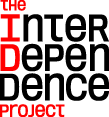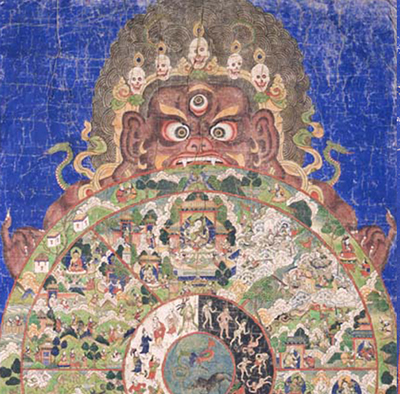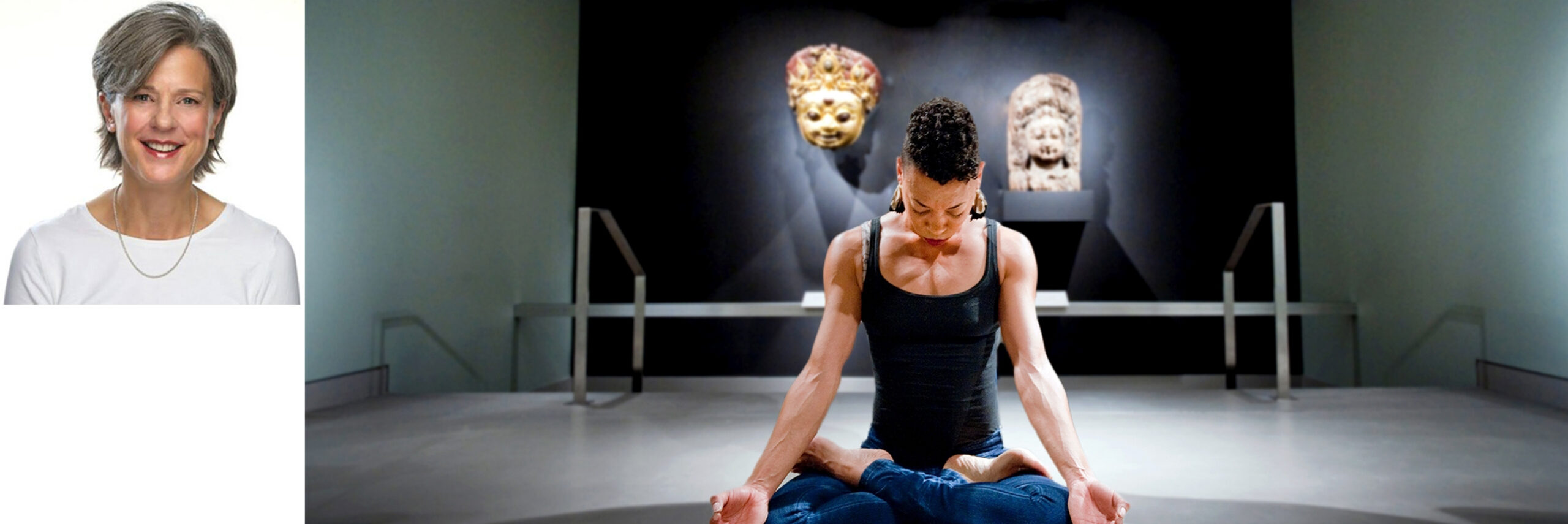
Tracy Cochran
Mindfulness Meditation
Wednesday, September 19, 2018
1:00 PM–1:45 PM Sold Out
Theme: Ritual
Rituals can help bring our awareness to great truths that we struggle to see in our everyday lives. This podcast episode begins with the example of the Wheel of Life, which depicts great Buddhist truths: the cycle of suffering and rebirth and the attainability of enlightenment. Tracy Cochran then discusses how ritual, like mindful breathing, can keep you connected to the bigger picture and “the infinite extent of your relations.”
About the Mindfulness Meditation Podcast
The Rubin Museum of Art presents a weekly meditation session led by a prominent meditation teacher from the New York area, with each session focusing on a specific work of art. This podcast is recorded in front of a live audience, and includes an opening talk, a 20-minute sitting session, and a closing discussion. The guided meditation begins at 20:30. If you missed this program, check out the podcast, now live in the Rubin Media Center.
If you would like to attend Mindfulness Meditation sessions in person or learn more, please visit our website at RubinMuseum.org/meditation.
This program is supported in part by the Hemera Foundation with thanks to our presenting partners Sharon Salzberg, the Interdependence Project, and Parabola Magazine.


Related Artwork

This painting presents karma, rebirth, liberation, and Buddhist cosmography in relation to each other. The Lord of Death (Yama) holds the Wheel of Life, the unenlightened cycle of birth and death (samsara). The innermost circle pictures the three poisonous afflictions, desire (represented by the rooster), ignorance (the pig), and anger (the snake), which lead one to be reborn within samsara.
The second circle has two halves: meritorious persons move upward in the white segment, referring to white karmic deeds that help advance one to a better rebirth, while dishonorable persons move downward in the dark half because of their black deeds. The larger circle shows the Six Realms of Existence: the gods’ realm at the top; the demi”gods’ to its right; the human realm, with fortunate people listening to the Buddha, to the left of the gods’ realm; the animal realm below the human world; the hungry ghosts are below the demi”gods; and the hell realm at the bottom.
The outer circle depicts the twelve links of Dependent Origination that explain how one is propelled through the cycle of existence beginning with ignorance and eventually leading to physical birth and death.
The Wheel of Life was usually painted at the entrance to Buddhist temples for didactic purposes. The presence of a Goddess of Learning and Arts (Saraswati) presiding over the gods’ realm suggests that this painting may have been produced for monks as well as the general public. The cycle of life and death and the rituals therein lead to enlightenment.
About the Speaker

Tracy Cochran is editorial director of Parabola, a quarterly magazine that for forty years has drawn on the world’s cultural and wisdom traditions to explore the questions that all humans share. She has been a student of meditation and spiritual practices for decades and teaches mindfulness meditation and mindful writing at New York Insight Meditation Center and throughout the greater New York area. In addition to Parabola, her writing has appeared in The New York Times, Psychology Today, O Magazine, New York Magazine, the Boston Review, and many other publications and anthologies. For more information please visit tracycochran.org.
This program is now SOLD OUT.
If you would like to be added to the standby list, please review our standby procedures.
Tickets: $19.00
Member Tickets: Free (registration required)
Note: Late comers may not be admitted past 1:10 p.m., so as to not disrupt the session.

